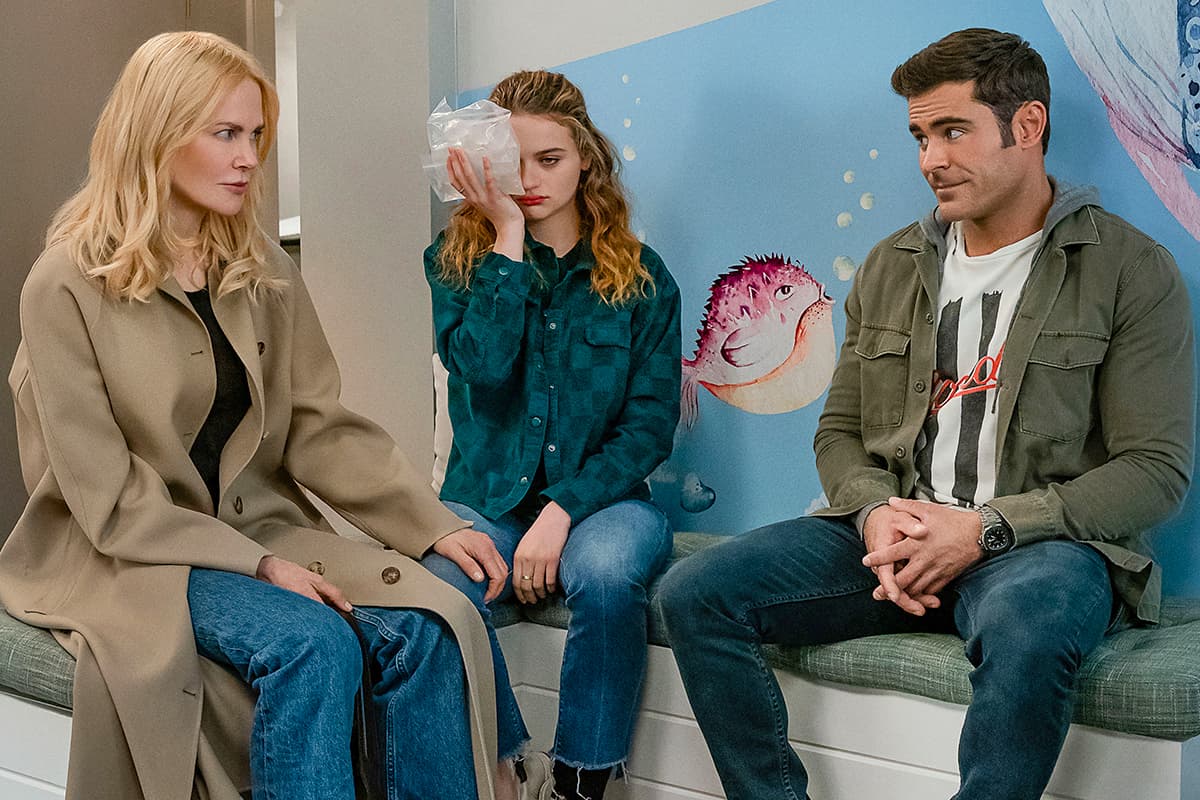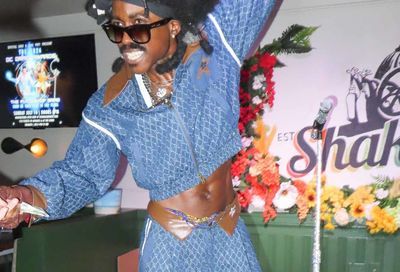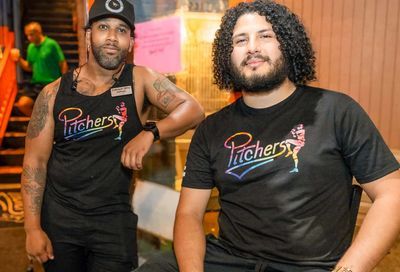‘Sex Education’ S4 Review: Oversexed
Netflix's hit returns for a final season with all the glorious awkwardness of being a teen in the throes of sexual awakening.

Initially airing in 2019, Sex Education (★★★★☆) created by Laurie Nunn, has evolved from a quirky teen sex comedy into a fan-favorite hit and astonishingly graceful look at teenage sexuality.
The fourth and final season finds the teens spending their last semester at a new school, Cavendish College, an incredibly queer/artsy school. Otis (Asa Butterfield) is struggling to juggle his long-distance relationship with Maeve (Emma Mackey) as she studies in America, his mother Jean’s (Gillian Anderson) new baby, and a rival sex therapist (Thaddea Graham) at school.
The show’s two eternal standouts, Otis’s bestie Eric (Ncuti Gatwa) and Maeve’s bestie Aimee (Aimee Lou Wood), also return with the former trying to handle his evolving queerness while the latter finds artistic therapy for her trauma.
Meanwhile, Adam (Connor Swindells), Eric’s bully-turned-ex-boyfriend, decides to not return to school, as Otis’ ex, Ruby (Mimi Keene), finds herself no longer popular. Transitioning Cal (Dua Saleh) struggles with hormones as former Head Boy Jackson (Kedar Williams-Stirling) discovers the prostate and Viv (Chinenye Ezeudu) struggles with a non-academic setting.
This season also features a new pack of queer popular teens, including Abbi (Anthony Lexa), the school’s trans “It Girl,” their partner Roman (Felix Mufti), and the hard-of-hearing Aishsa (Alexandra James).
If that sounds like a lot, that’s because it is. Even as the show removes a good chunk of the supporting cast from earlier seasons, Sex Education still feels stuffed to the brim while attempting to add even more new characters.

Knowing it’s coming to an end, the series tries to neatly jam all of its storylines together to mixed results. The most obvious examples of this come from the guest stars, with both Dan Levy and Hannah Gadsby as a teacher and Jean’s boss, respectively, feeling like caricatures of themselves in thinly written roles.
Levy’s character, especially, feels like a troubled writer stereotype that comes off like a misstep for a show of this caliber. Along with Levy’s storyline, Maeve’s American storyline feels disconnected from the rest of the action. It’s a waste of her impact and presence in the series.
On the opposite end is Ruby’s story, full of depth, bringing one of the show’s villains into the same light as the rest of the characters and giving them a second chance with a great story to work with.
Despite the sometimes suffocating amount of stories, the series maintains its standard for humor and grace. Every other teen show on Earth tends to push adult storylines onto younger people, ignoring the fact that they are real people with lived experiences and unique challenges.
Sex Education starts its final season with awkward nudes, cliques of trans popular kids, and sex toy rankings, which is only a fraction of the sexual antics the show gets up to. At every opportunity, the series has the chance to go for the low-hanging fruit but instead chooses to elevate the awkward moments to joyful learning in the same fashion it has done since its inception.
Highly needed conversations come and go easily for the show, including aspects of queerness, like Cal’s experience with hormones, and what could be the first example of this on screen for so many people who probably really need to see it.
Eric’s struggle with his family’s wish for him to get baptized and his own journey with religion would be an easy excuse to put an LGBTQ character through the wringer and traumatize them. Instead, it gives him room to question his beliefs about sexuality and religion and has nuanced growth, even letting him bond with a trans girl in a similar situation.
Instead of letting her sexual abuse dour her reality, Aimee uses art to inspire her to move forward in a healthy manner. Adam’s father (Alistair Petrie) struggles to be a better father to his bisexual son, but instead of being predictably stubborn, does the work to make the relationship with his only son better.
One of the largest improvements for the season comes in its enhanced queerness. The new school is run by a group of popular LGBTQ teens and features queerness in all its forms at every turn. The news makes it seem like LGBTQ kids in schools are in more danger than ever, giving the queer freeness of the setting a renewed importance. This helps the storylines as well, adding emotional weight for the newer characters, even if every other argument ends with some form of “we just need to talk.”
When things finally wrap up for Sex Education, it comes with a nice and neat little bow. It’s not a huge surprise to see the series choose a safe ending, even at the expense of the highs of previous seasons. Unlike Heartstopper, Netflix’s other teen hit show, Sex Education provides its characters a level of mature respect and sexual agency that is amazing for LGBTQ teens.
By embracing sexuality, the show has become a beacon of what teen series could and should be: One where teens aren’t treated as sterile infants but as real humans who are thrown into a scary world with no guidance at all.
Despite the pressure of a series finale, Sex Education ends with all the joy and laughter you’d expect. The final season isn’t perfect, but it’s a fitting and enjoyable end to one of the best of the decade.
All four seasons of Sex Education are now streaming in full on Netflix. Visit www.netflix.com.
Support Metro Weekly’s Journalism
These are challenging times for news organizations. And yet it’s crucial we stay active and provide vital resources and information to both our local readers and the world. So won’t you please take a moment and consider supporting Metro Weekly with a membership? For as little as $5 a month, you can help ensure Metro Weekly magazine and MetroWeekly.com remain free, viable resources as we provide the best, most diverse, culturally-resonant LGBTQ coverage in both the D.C. region and around the world. Memberships come with exclusive perks and discounts, your own personal digital delivery of each week’s magazine (and an archive), access to our Member's Lounge when it launches this fall, and exclusive members-only items like Metro Weekly Membership Mugs and Tote Bags! Check out all our membership levels here and please join us today!

























You must be logged in to post a comment.